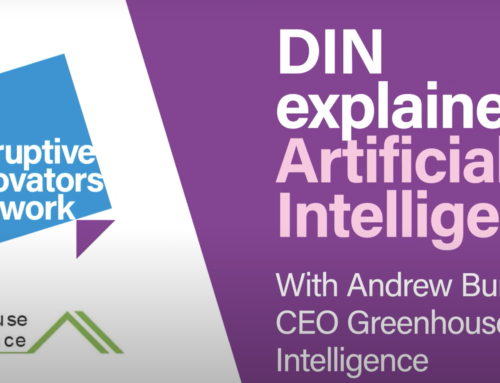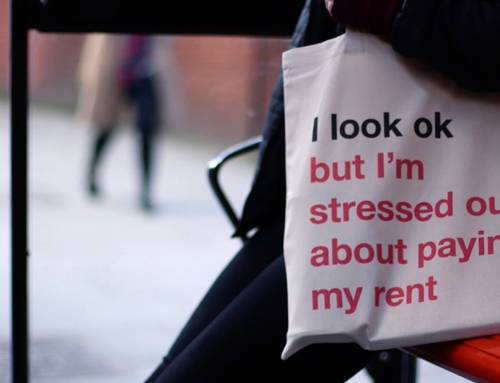Parkinson’s UK is Europe’s leading Parkinson’s support and research charity. The organisation raises around £35m p.a. to drive better care, treatments and quality of life for those with Parkinson’s, their friends, family and their carers..
Parkinson’s UK has been working hard to understand the value of its data and the benefits that it can deliver so it can support a key pillar of their strategy to be Fit for the Future: “proudly pioneering new ways to operate strategically, empower our people, and make the biggest possible impact with every penny”.
Following a successful project to develop an AI Strategy for Prostate Cancer UK, Andrew Burgess, CEO of Greenhouse Intelligence, was asked to carry out a similar piece of work with Parkinson’s UK. This project aimed to understand the ‘art of the possible’ of using artificial intelligence across the charity, identifying opportunities for AI that would meet the strategic aims of the organisation.
However, during March 2020 coronavirus impacted the way all organisations, and particularly charities, worked, and so the project pivoted its focus to identifying what AI could do immediately to help Parkinson’s UK cope with the crisis and the fast changing needs of their community.
The Work
The AI Strategies that Greenhouse Intelligence develop with their clients usually focus on a window of between 1 and 3 years, with some ‘quick wins’ and proofs-of-value to build momentum in the near term. As the full impact of the coronavirus pandemic was felt across the UK in mid-March of 2020, all charities were hit with a huge funding shortfall as donations dried up overnight. But, at the same time, they had to continue to support their community who needed the charity’s help more than ever. It was clear that any AI opportunities that looked further ahead than even a few weeks would be irrelevant at that stage.
Greenhouse immediately pivoted the work to focus on how AI could help the charity immediately. Through discussions with the Parkinson’s team there were two big challenges that needed to be faced: to understand the immediate needs of their community, and to bring in more donations.
Listening to the community
It is crucial that the communications from Parkinson’s UK out to its communities, as well as the actions taken, reflect as closely as possible the feelings and concerns of those people. During the Covid-19 crisis these concerns were changing on a very frequent basis as different rules were announced from the Government and the lockdown continued on.
Greenhouse recommended that Parkinson’s UK use a solution from a specialist AI vendor to track the topics and themes that the communities were discussing. By using a technique called Comparative Linguistics they were able to identify how the conversations on the forum, helpline and social media groups were changing on a week-by-week basis.
The software was negotiated on a special short-term ‘crisis’ license to allow Parkinson’s UK to try it out but also to benefit from it during the critical period. The team was able to identify a number of different themes, some of which came and went, whilst others persisted. For example, the importance of physiotherapy was a key finding and the charity’s efforts to provide remote sessions was driven in part by these insights.
Maximising fundraising efforts
The second recommendation was to optimise the fundraising campaigns by using machine learning to better identify potential donors. The charity already used some analytical methods to help them do this, but, by using machine learning new and novel drivers for cohort selection can be discovered that may not have otherwise been considered, or that perhaps seemed counter-intuitive. Crucially, machine learning treats each donor as an individual, rather than as part of a wider group.
Greenhouse recommended using a machine learning solution that has been trained specifically to help charities. As well as helping find the right donors, the solution can also be used to identify regular givers who may be thinking of pausing their donations, or one-off donors who might want to move to a regular subscription. The models can be updated on a daily or weekly basis as the attitudes of people change during the crisis.
Parkinson’s UK are currently using the new models to help plan their next campaign. Typically, they should expect a 10-20% net return per campaign using machine learning.
Shaun Le Geyt, Parkinson’s UK CIO, said of the initiatives, “Greenhouse Intelligence has helped Parkinson’s UK to get more value from the data we hold and use it to better support people affected by Parkinson’s.”
Looking Further Ahead with AI
Parkinson’s UK is now starting to look further ahead, and how AI can help their cause in the long term. In particular we have started to investigate how AI can help amplify the research into Parkinson’s Disease, which has been hit both by the contraction of funding but also the challenges of accessing labs to carry out ‘wet’ research.
Parkinson’s UK and Greenhouse Intelligence are working to scope two projects that will look to identify new sources of value and insight from the many and varied data sources that it has access to. It is hoped that AI will be able to unlock new insights by looking at correlations and patterns across all of the data sets, from brain tissue samples to behavioural questionnaires. Parkinson’s UK is ideally positioned at the hub of the Parkinson’s community in the UK to bring all the necessary resources and expertise together. Greenhouse Intelligence will support those efforts and provide the necessary AI capabilities and ethics to ensure that the work delivers to its full potential.
Jesse Mears is the Head of Data Strategy at Parkinson’s UK and was the main liaison point between Greenhouse Intelligence and the charity. She said, “Greenhouse Intelligence has helped us to understand how we can use AI to bring value to the organisation and people affected by Parkinson’s now, as well as in the future. Andrew worked flexibly and sensitively to our changing needs during the pandemic, pivoting with us and rapidly demonstrating how AI can help us better understand the needs of people with Parkinson’s during this time.“







